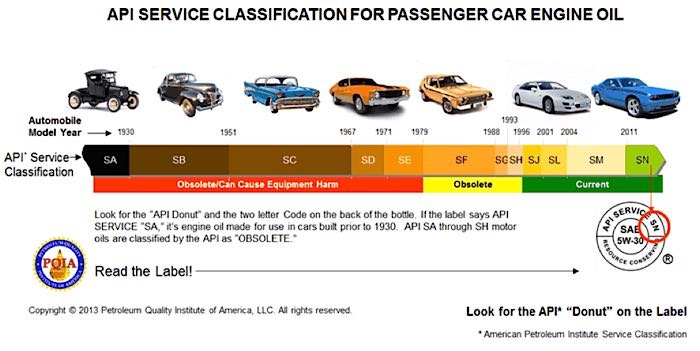How to Choose the Right Motor Oil?: Ultimate Guide
Choosing the right motor oil for your vehicle is crucial for maintaining its performance and longevity. With so many options available, it can be overwhelming to determine the best choice for your car. In this guide, we will walk you through everything you need to know to choose the best engine oil for your car or any vehicle.

Credit: www.autoguide.com
Factors to Consider
When selecting the right motor oil, there are several factors to consider:
1. Viscosity Rating
The viscosity rating of the oil is a measure of its thickness and ability to flow at different temperatures. It is usually denoted by a combination of numbers and letters, such as 5W-30. The first number (e.g., 5W) indicates the oil’s flow at low temperatures, while the second number (e.g., 30) represents its flow at high temperatures. Consult your car’s owner’s manual to find the recommended viscosity for your vehicle.
2. Additives
Motor oils come with various additives that offer different benefits, such as improved lubrication, corrosion resistance, and cleaning properties. Some common additives include detergents, dispersants, anti-wear agents, and viscosity index improvers. Consider your driving conditions and the specific needs of your vehicle when evaluating the additives in the motor oil.
3. Driving Conditions
Your driving habits and the environment in which you typically operate your vehicle can influence the type of motor oil you need. For instance, if you frequently drive in stop-and-go traffic or under extreme temperatures, you may require a different oil compared to someone who mainly drives on highways in moderate climates.
4. Car’s Mileage
The mileage of your car can also play a role in determining the right motor oil. High-mileage vehicles may benefit from specially formulated oils designed to address the needs of older engines, such as those with worn seals or increased oil consumption.
5. Manufacturer’s Recommendation
Always refer to your car manufacturer’s recommendations for the type of motor oil to use. The owner’s manual will specify the viscosity grade and performance level required for your vehicle, ensuring that you select a suitable oil that meets the necessary specifications.
6. Environmental Impact
Consider the environmental impact of the motor oil you choose. Opt for oils that meet industry standards for energy conservation and environmental protection, such as those certified by the American Petroleum Institute (API) or other relevant organizations.

Credit: www.import-car.com
Finding the Recommended Oil Type
Locating the recommended oil type for your vehicle is essential in ensuring that you are using the right product. The following are common sources to find the recommended oil type:
- Your Car’s Owner’s Manual: Check the capacities and specifications section of your owner’s manual for the recommended engine oil type and viscosity.
- Manufacturer’s Website: Many car manufacturers provide detailed information about recommended motor oils on their official websites.
- Online Forums and Communities: Participating in automotive forums or communities can offer insights from other car owners and enthusiasts about the best motor oil for your specific vehicle.
- Automotive Service Centers: Professional technicians at automotive service centers can provide guidance on selecting the right motor oil for your car.
Mineral vs. Synthetic Engine Oils
When choosing motor oil, you will likely encounter options for both mineral and synthetic oils. Mineral oils are derived from crude oil, while synthetic oils are chemically engineered to offer specific performance characteristics. Understanding the differences between these two types of oils can help you make an informed decision.
Mineral Engine Oils
Mineral oils are traditional lubricants that have been used in vehicles for decades. They offer basic protection and lubrication for most engines and are suitable for regular driving conditions. However, they may not provide the same level of performance and longevity as synthetic oils.
Synthetic Engine Oils
Synthetic oils are formulated to offer superior performance, especially in extreme temperatures and demanding driving conditions. They provide better protection against wear, improved fuel economy, and enhanced resistance to oxidation. While synthetic oils are typically more expensive, they can offer extended drain intervals and better overall engine protection.
Frequently Asked Questions
How To Select The Right Engine Oil?
Selecting the right engine oil involves considering viscosity rating, additives, driving conditions, car mileage, manufacturer’s recommendation, and environmental impact. Consult your car’s manual for specific guidance. Using the correct oil helps keep the engine clean, reduces wear, and maximizes performance.
Follow the recommended oil specifications in the Owner’s Manual.
Should I Get 5w30 Or 10w30?
When choosing between 5W30 and 10W30 motor oil, consider factors such as the oil’s viscosity rating, driving conditions, car manufacturer’s recommendation, and mileage. Refer to your car’s owner’s manual for specific guidance on engine oil selection. Choosing the right oil helps keep your engine clean, reduces wear, and maximizes performance.
Where Do I Find The Recommended Oil Type?
You can find the recommended oil type in your car’s Owner’s Manual under Capacities and Specifications. It’s essential to use the right oil for engine cleanliness, reduced wear, and optimal performance. Following the manufacturer’s guidance is crucial for the best engine oil selection.
Can I Use 5w-30 Instead Of 0w-30?
Yes, you can use 5w-30 instead of 0W-30. Both oils have similar viscosity at operating temperature, but the 0W-30 will provide better cold-start protection. Consider your driving conditions and the manufacturer’s recommendations when choosing the right motor oil for your vehicle.
Refer to your owner’s manual for specific guidance.
What Factors Should I Consider When Choosing Motor Oil?
Consider the viscosity rating, additives, driving conditions, mileage, manufacturer’s recommendation, and environmental impact.
How Do I Select The Right Engine Oil For My Vehicle?
Refer to your car’s owner’s manual for specific guidance on engine oil selection. Look for recommended engine oil specifications under Capacities and Specifications.
Should I Use Mineral Or Synthetic Engine Oil?
Both types have their advantages. Synthetic oil is more expensive but lasts longer and performs better in extreme temperatures. Mineral oil is cheaper but requires more frequent changes.
Conclusion
Choosing the right motor oil for your car is essential for maintaining the health and performance of your engine. By considering factors such as viscosity rating, additives, driving conditions, manufacturer’s recommendation, and environmental impact, you can make an informed decision when selecting the best motor oil for your vehicle. Always refer to your car’s owner’s manual and consult with automotive professionals to ensure that you are using the most suitable motor oil for your specific car model and driving needs.




